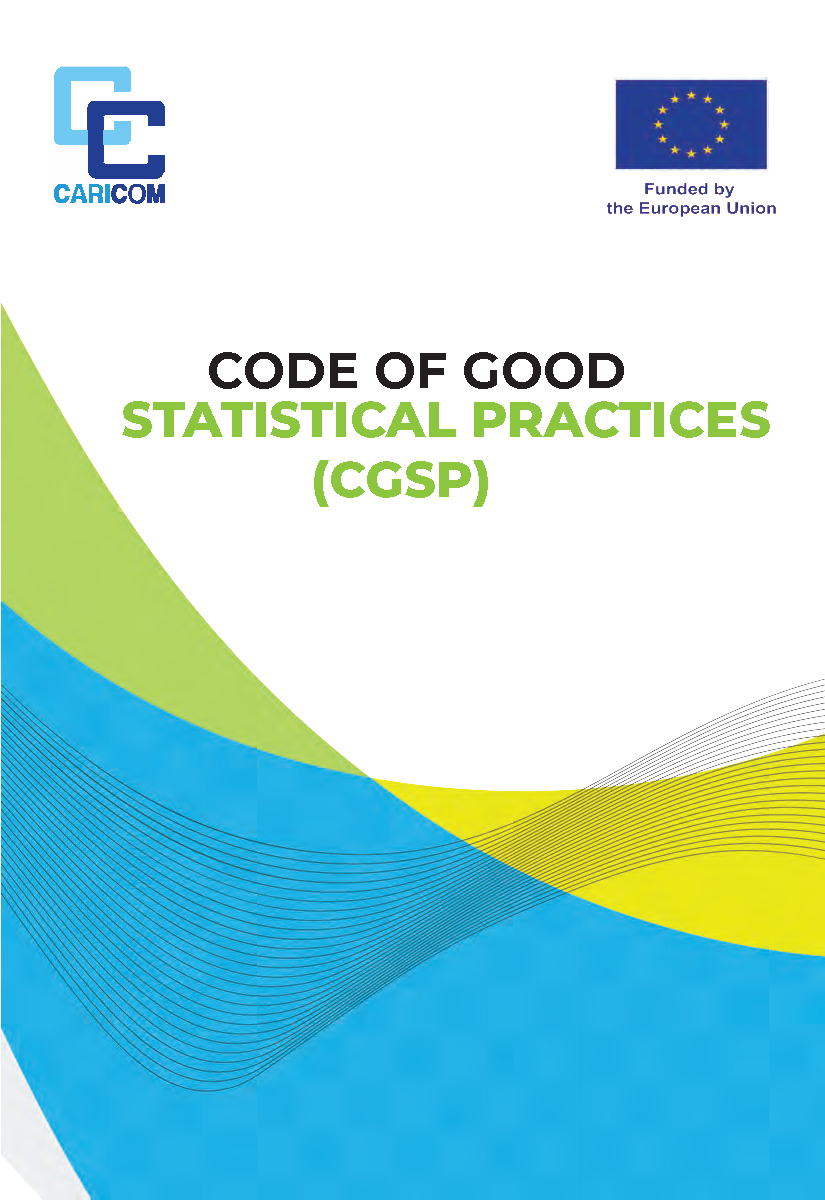The CARICOM Code of Good Statistical Practices (CGSP) is a framework established to guide Member States and Associate Members in the production of high-quality statistics. The Code outlines standards and ethical principles for statistical work, ensuring relevance, timeliness, transparency, confidentiality, objectivity and professionalism in the production of official statistics. The CGSP also emphasises professional independence, the use or adherence to international standards and data quality assurance, all of which are fundamental for building trust in the statistical system.
A key Strategy of the implementation of the Regional Strategy for the Development of Statistics (RSDS) is to Advance the implementation of the CARICOM Code of Good Statistical Practices (CGSP) and commence implementation of the CARICOM Quality Assurance Framework (CQAF).
The CGSP, comprising 15 principles and 77 indicators, was created to establish a common code of ethics across the CARICOM Statistical System (CSS). The Code is a vital mechanism to assess (self-assess) quality and good practices in Statistics.
The CGSP was formally endorsed at the 40th Meeting of the SCCS, marking a key milestone in monitoring and improving the delivery of high-quality statistics for evidence-based decision-making.
It has been administered four times, 2010/11, 2013/14, 2016/17 and 2019/2020. Current developmental work led by the AGS and endorsed by the SCCS is the incorporation of a system of peer review.
At the regional level, the information across all countries is compiled and analysed.
Countries can also determine adherence on an individual basis or in comparison to other countries in the Region.






